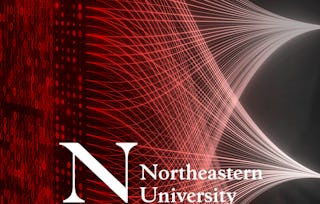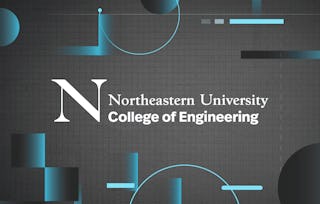This course will guide you through the essential principles of algorithms and their significance in computational problem-solving. You'll begin by exploring what an algorithm is, its core characteristics, and how it applies to real-world scenarios—from simple everyday tasks to complex computing challenges. As you progress, you will learn about the critical role algorithms play in improving efficiency and scalability across various fields. We’ll break down key concepts such as algorithmic complexity, helping you evaluate the efficiency of different approaches, which will ultimately guide your decision-making.
即将结束: 只需 199 美元(原价 399 美元)即可通过 Coursera Plus 学习新技能。立即节省

您将获得的技能
要了解的详细信息

添加到您的领英档案
July 2025
32 项作业
了解顶级公司的员工如何掌握热门技能

该课程共有6个模块
In this module, you will master dynamic programming principles such as memoization and tabulation to optimize complex problems. You will learn how to apply these techniques by implementing the Bellman-Ford algorithm and solving optimization challenges. Additionally, you will see how to use dynamic programming and backtracking to tackle puzzles and constraint-satisfaction problems, with opportunities to integrate reinforcement learning concepts.
涵盖的内容
2个视频16篇阅读材料5个作业2个应用程序项目
In this module you will explore network flow fundamentals and the max-flow min-cut theorem and their practical applications. You will master key algorithms such as Ford-Fulkerson and Push-Relabel to solve network flow problems. These techniques will be applied to real-world challenges like bipartite matching and project selection, providing a strong foundation in network optimization.
涵盖的内容
1个视频16篇阅读材料5个作业
In this module, you will gain a deep understanding of P, NP, and NP-Completeness, including how to classify and differentiate these problem types. You will master techniques for proving NP-Completeness and identifying NP-Hard problems. Additionally, you will develop and apply approximation algorithms and heuristics to tackle intractable problems, focusing on efficiency and trade-offs in complex problem-solving.
涵盖的内容
13篇阅读材料5个作业1个应用程序项目
In this module, you will master the fundamentals of Bayes' Rule, including understanding its components such as prior, likelihood, posterior, and evidence. You will learn how to apply Bayes' Rule to solve probability problems and update prior information with new evidence. Additionally, you will employ Bayesian inference to analyze data.
涵盖的内容
13篇阅读材料5个作业
In this module, you will explore the role of approximation algorithms in addressing NP-hard optimization problems by seeking near-optimal solutions within a practical time frame. You will learn to evaluate the performance of these algorithms using performance ratios to gauge their proximity to the optimal solution. Through examples such as the Vertex Cover, Traveling Salesman, Set Covering, and Subset Sum Problems, you will gain hands-on experience in applying approximation algorithms.
涵盖的内容
17篇阅读材料7个作业
In this module, you will delve into the principles and motivations behind randomized algorithms, understanding the key differences between deterministic and randomized approaches. You will analyze randomized sorting and searching algorithms, such as randomized quicksort and randomized binary search, to assess their efficiency and reliability. Additionally, you will explore randomized data structures like skip lists and hash tables, evaluating their performance advantages.
涵盖的内容
14篇阅读材料5个作业
位教师

从 Data Analysis 浏览更多内容
 状态:预览
状态:预览Northeastern University
 状态:预览
状态:预览Northeastern University
 状态:免费
状态:免费Princeton University
 状态:免费
状态:免费Princeton University
人们为什么选择 Coursera 来帮助自己实现职业发展




常见问题
To access the course materials, assignments and to earn a Certificate, you will need to purchase the Certificate experience when you enroll in a course. You can try a Free Trial instead, or apply for Financial Aid. The course may offer 'Full Course, No Certificate' instead. This option lets you see all course materials, submit required assessments, and get a final grade. This also means that you will not be able to purchase a Certificate experience.
When you purchase a Certificate you get access to all course materials, including graded assignments. Upon completing the course, your electronic Certificate will be added to your Accomplishments page - from there, you can print your Certificate or add it to your LinkedIn profile.
Yes. In select learning programs, you can apply for financial aid or a scholarship if you can’t afford the enrollment fee. If fin aid or scholarship is available for your learning program selection, you’ll find a link to apply on the description page.
更多问题
提供助学金,



